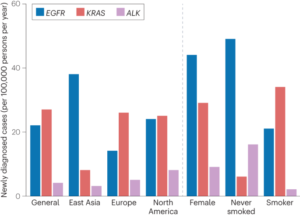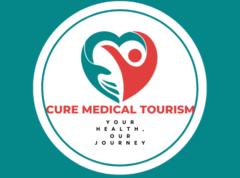In a world where awareness is key to combating life-threatening diseases, understanding the intricate details of lung cancer symptoms becomes paramount. With its staggering prevalence and profound impact on global health, lung cancer demands our attention and vigilance. Let’s delve into the nuances of its symptoms, from subtle warnings to glaring red flags, empowering readers to recognize potential signs and take proactive steps toward early detection and treatment.
The Global Burden of Lung Cancer:
Lung cancer stands as one of the most prevalent and deadliest forms of cancer worldwide. According to the World Health Organization (WHO), it accounts for nearly 2 million new cases annually, with over 1.7 million deaths attributed to the disease each year. This staggering toll not only affects individuals but also reverberates across families and communities, highlighting the urgent need for awareness and action.

The global burden of lung cancer
Recognizing the Signs:
Lung cancer symptoms vary widely, often manifesting differently based on the stage of the disease. In the early stages, symptoms may be subtle and easily overlooked, mimicking common respiratory ailments. These can include:
- Persistent Cough: A lingering cough that doesn’t go away or worsens over time.
- Shortness of Breath: Difficulty breathing or catching your breath, even with minimal exertion.
- Chest Pain: Persistent chest pain that worsens with deep breathing, coughing, or laughing.
- Unexplained Weight Loss: Sudden and unexplained weight loss, despite maintaining normal eating habits.
- Fatigue: Persistent fatigue or weakness, even after adequate rest.
As the disease progresses, symptoms may intensify and become more pronounced, including:
- Coughing Up Blood: Hemoptysis, or coughing up blood-streaked sputum, is a concerning symptom that warrants immediate medical attention.
- Wheezing: A whistling or rattling sound while breathing, indicative of airway obstruction.
- Hoarseness: Changes in voice tone or persistent hoarseness, often signaling vocal cord involvement.
- Difficulty Swallowing: Dysphagia, or difficulty swallowing, may occur if the tumor compresses the esophagus or affects nearby structures.
- Swelling of Neck or Face: Enlargement of lymph nodes or accumulation of fluid in the face and neck region.
Early Detection Saves Lives:
The importance of early detection cannot be overstated in the battle against lung cancer. Recognizing symptoms promptly and seeking medical evaluation can significantly improve treatment outcomes and survival rates. Studies show that individuals diagnosed at an early stage have a higher likelihood of successful treatment and long-term survival compared to those diagnosed at advanced stages.
Taking Action:
Empower yourself with knowledge and take proactive steps to safeguard your respiratory health. If you experience any persistent or concerning symptoms, don’t hesitate to consult a healthcare professional. Additionally, consider the following actionable steps:
- Quit Smoking: If you smoke, quitting is the single most important step you can take to reduce your risk of developing lung cancer.
- Annual Screening: For individuals at high risk, such as current or former smokers, annual lung cancer screening with low-dose CT scans can detect abnormalities at an early stage when treatment is most effective.
- Healthy Lifestyle: Adopting a healthy lifestyle, including regular exercise, a balanced diet, and avoiding exposure to environmental toxins, can contribute to overall well-being and reduce cancer risk.
Conclusion:
In the fight against lung cancer, awareness and early detection are our strongest weapons. By understanding the diverse range of symptoms associated with the disease and taking proactive steps to monitor respiratory health, individuals can play a crucial role in their own well-being. Let’s unite in our efforts to foster awareness, promote early detection, and ultimately save lives in the battle against lung cancer.
References:
- World Health Organization (WHO). (2022). Cancer: Key Facts. Retrieved from https://www.who.int/news-room/fact-sheets/detail/cancer
- American Cancer Society. (2022). Lung Cancer Signs and Symptoms. Retrieved from https://www.cancer.org/cancer/lung-cancer/detection-diagnosis-staging/signs-symptoms.html
- National Cancer Institute. (2022). Lung Cancer Screening. Retrieved from https://www.cancer.gov/types/lung/patient/lung-screening-pdq
- American Lung Association. (2022). Lung Cancer Symptoms. Retrieved from https://www.lung.org/lung-health-diseases/lung-disease-lookup/lung-cancer/learn-about-lung-cancer/lung-cancer-symptoms
- Centers for Disease Control and Prevention (CDC). (2022). Smoking and Tobacco Use: Quit Smoking. Retrieved from https://www.cdc.gov/tobacco/quit_smoking/index.htm

